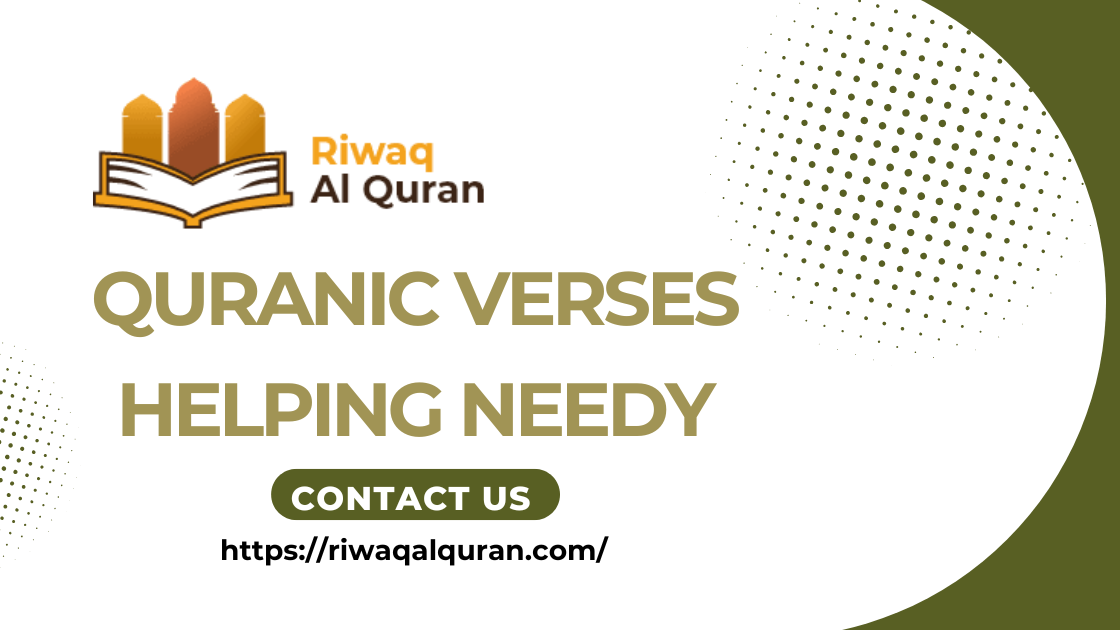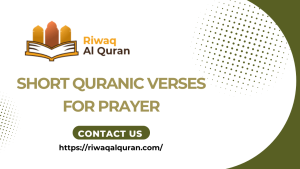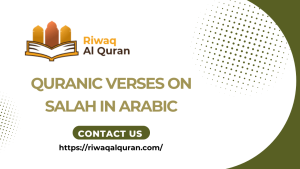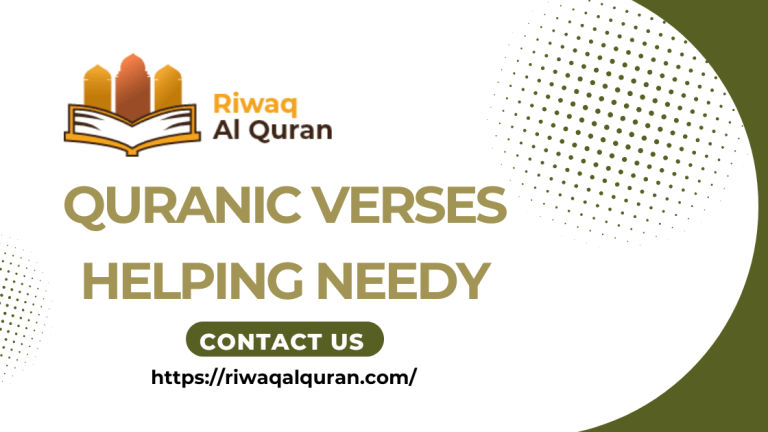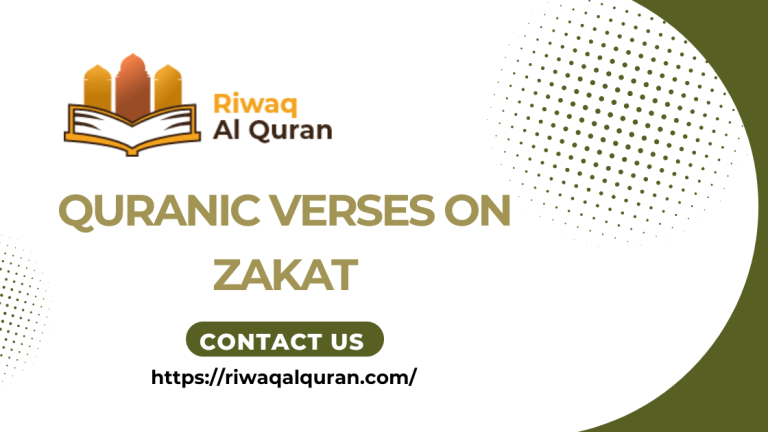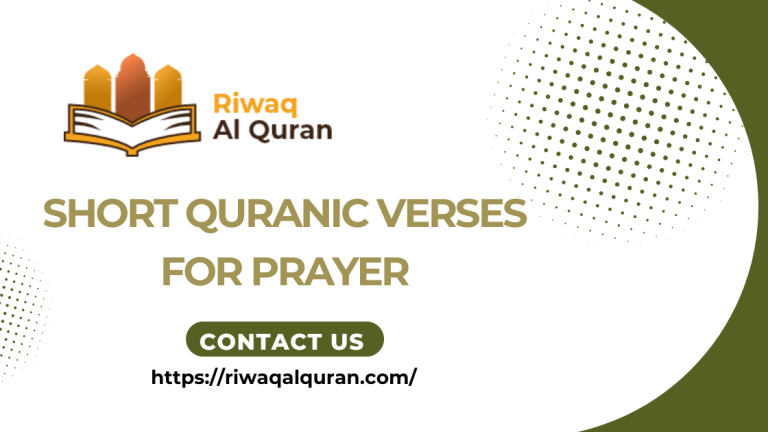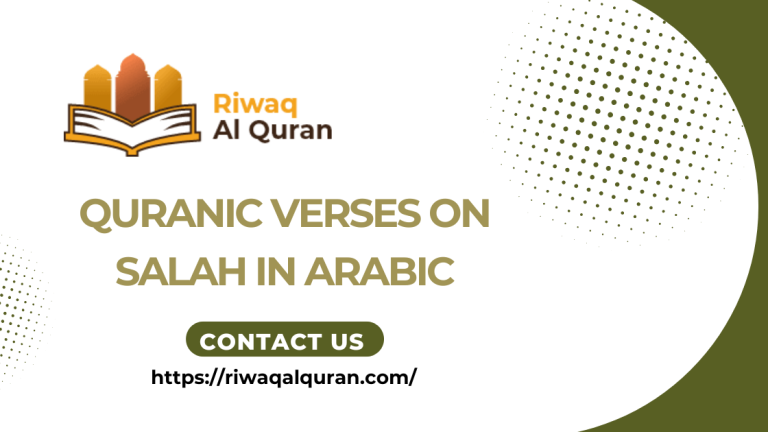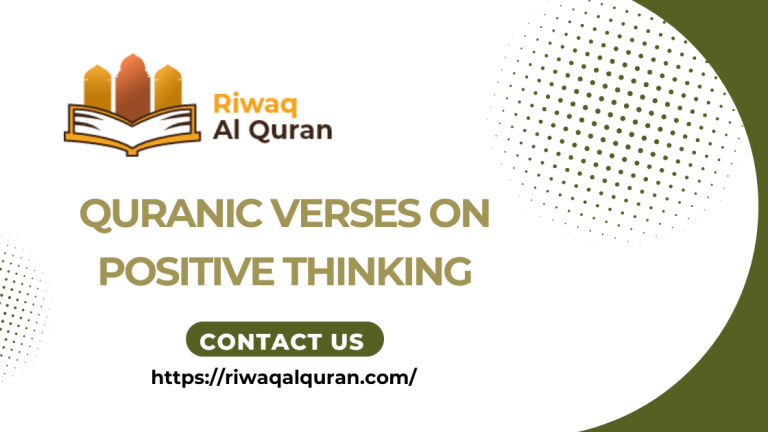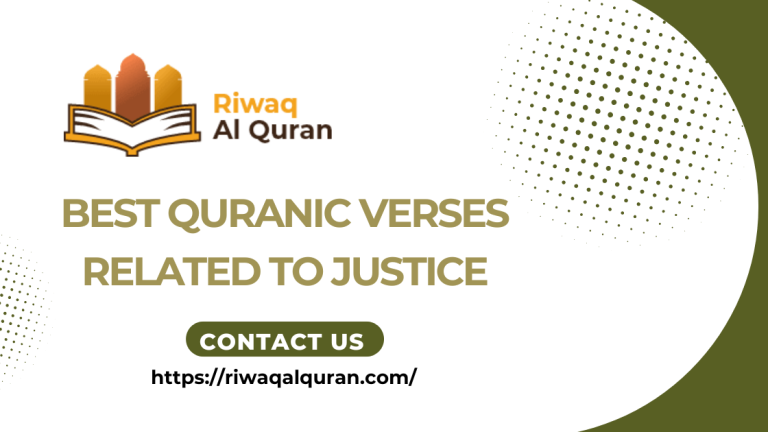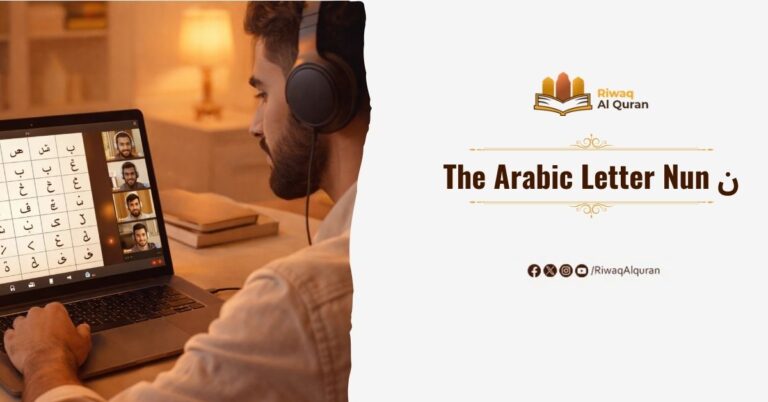Giving to those in need is not a peripheral act in Islam — it sits at the very heart of the faith. The Quran returns to this theme repeatedly, connecting generosity directly to belief, moral character, and closeness to Allah. These verses are not simply reminders; they are divine commands with profound spiritual weight.
Understanding which Quranic verses address helping the needy helps a Muslim live consciously. Each verse carries a distinct emphasis — from the obligation of Zakat to the quiet virtue of feeding a neighbor. Knowing these verses deeply, with their context and meaning, shapes how a believer approaches wealth, poverty, and community responsibility.
Table of Contents
1. The Verse That Defines Righteousness Through Giving to the Vulnerable
Helping the needy is presented in the Quran not as charity alone, but as a defining marker of righteousness.
Allah describes the truly righteous in Surah Al-Baqarah with remarkable specificity, naming the categories of people who deserve support.
This verse stands as one of the most comprehensive Quranic statements on social responsibility.
It lists the poor, travelers, those who ask, and those in bondage — making clear that helping the needy spans many forms of human vulnerability.
وَآتَى الْمَالَ عَلَىٰ حُبِّهِ ذَوِي الْقُرْبَىٰ وَالْيَتَامَىٰ وَالْمَسَاكِينَ وَابْنَ السَّبِيلِ وَالسَّائِلِينَ وَفِي الرِّقَابِ
Wa aatal-maala ‘alaa hubbihi dhawil-qurbaa wal-yataamaa wal-masaakeena wabnas-sabeeli was-saa’ileena wa fir-riqaab
“And gives wealth, in spite of love for it, to relatives, orphans, the needy, the traveler, those who ask, and for freeing slaves.” (Al-Baqarah 2:177)
The phrase “in spite of love for it” is significant. Scholars of Tafseer, including Ibn Katheer, note that this acknowledges the natural human attachment to wealth. True giving, therefore, requires an active internal choice — and that choice is what earns spiritual distinction.
At Riwaq Al Quran, students enrolled in the Online Quran Memorization Course are encouraged to understand such verses contextually — not only to memorize their words but to internalize their obligations.
Start your Hifz journey with a Free Trial

2. Zakat Is an Obligation in Islam to Help the Needy
Zakat is the third pillar of Islam, and the Quran consistently pairs it with Salah. This pairing is not accidental — it signals that financial obligation to the needy carries the same rank as prayer in the sight of Allah.
The most frequently repeated Quranic instruction on helping the needy appears in dozens of verses. The pairing of Salah and Zakat occurs dozens of times across the Quran.
وَأَقِيمُوا الصَّلَاةَ وَآتُوا الزَّكَاةَ وَارْكَعُوا مَعَ الرَّاكِعِينَ
Wa aqeemu as-salaata wa aatuz-zakaata war-ka’oo ma’ar-raaki’een
“And establish prayer and give Zakat and bow with those who bow.” (Al-Baqarah 2:43)
This connection teaches that worship of Allah is incomplete without fulfilling the rights of people.
The following table reflects the full Zakat disbursement framework established in Surah At-Tawbah. Understanding each category ensures that giving is targeted and meaningful, not merely a financial transfer.
| Arabic Term | Meaning | Who Qualifies |
| Al-Fuqarā’ | The poor | Those with less than the Nisab threshold |
| Al-Masākīn | The needy | Those with some income but insufficient for basic needs |
| Al-‘Āmilīna ‘alayhā | Zakat administrators | Appointed collectors and distributors |
| Al-Mu’allafatu Qulūbuhum | Those whose hearts are inclined | New Muslims or those being encouraged toward Islam |
| Fī al-Riqāb | Freeing slaves/captives | Historically, manumission; applied today to equivalent forms of bondage |
| Al-Ghārimīn | The indebted | Those overwhelmed by debt with no means to repay |
| Fī Sabīlillāh | In the cause of Allah | Primarily Jihad, and scholars extend this to Islamic services in the community. |
| Ibn al-Sabīl | The stranded traveler | A traveler cut off from their resources far from home |
إِنَّمَا ٱلصَّدَقَـٰتُ لِلْفُقَرَآءِ وَٱلْمَسَـٰكِينِ وَٱلْعَـٰمِلِينَ عَلَيْهَا وَٱلْمُؤَلَّفَةِ قُلُوبُهُمْ وَفِى ٱلرِّقَابِ وَٱلْغَـٰرِمِينَ وَفِى سَبِيلِ ٱللَّهِ وَٱبْنِ ٱلسَّبِيلِ فَرِيضَةً مِّنَ اللَّهِ ۗ وَاللَّهُ عَلِيمٌ حَكِيمٌ
Innama alssadaqatu lil-fuqara-i wal-masakini wal-AAamileena AAalayha wal-muallafati quloobuhum wafee alrriqabi wal-ghareimeena wafee sabeeli Allahi waibni alssabeel
“Zakah expenditures are only for the poor and for the needy and for those employed to collect [zakah] and for bringing hearts together [for Islam] and for freeing captives [or slaves] and for those in debt and for the cause of Allah and for the [stranded] traveler – an obligation [imposed] by Allah. And Allah is Knowing and Wise.” (At-Tawbah 9:60)
This single Quranic verse on Zakat defines all eight lawful categories of recipients (masarif al-Zakat) with complete legislative clarity.


3. Neglecting the Orphan and the Poor Is Framed as a Denial of Faith
The Quran does not only encourage generosity — it issues stern warnings against those who ignore the needy. Surah Al-Ma’un opens with a sharp rhetorical question that challenges the very meaning of religious belief.
This short Surah is one of the most direct critiques in the entire Quran. It defines the person who “denies the religion” as one who pushes away the orphan and fails to encourage feeding the poor — linking creed to conduct without compromise.
أَرَأَيْتَ الَّذِي يُكَذِّبُ بِالدِّينِ فَذَٰلِكَ الَّذِي يَدُعُّ الْيَتِيمَ وَلَا يَحُضُّ عَلَىٰ طَعَامِ الْمِسْكِينِ
Ara’aytal-ladhee yukadhdhibu bid-deen. Fadhaalikal-ladhee yadu’ul-yateem. Wa laa yahuddu ‘alaa ta’aamil-miskeen.
“Have you seen the one who denies the religion? For that is the one who drives away the orphan and does not encourage the feeding of the poor.” (Al-Ma’un 107:1–3)
Classical scholars noted that the word “yukadhdhibu” — to deny or reject — here refers to practical denial through behavior, not only verbal rejection of faith. Neglecting the needy is framed as a form of spiritual contradiction.
4. A Single Act of Charity Can Multiply Seven Hundredfold in Allah’s Sight
While warnings exist, the Quran balances them with vivid descriptions of the reward for giving. Surah Al-Baqarah presents one of the most powerful images of how generosity multiplies in the sight of Allah.
This verse uses an agricultural metaphor — a single grain producing seven hundred — to illustrate the scale of divine return on sincere charity. The message is not transactional; it establishes that Allah’s generosity toward the giver far exceeds what is given.
مَثَلُ الَّذِينَ يُنفِقُونَ أَمْوَالَهُمْ فِي سَبِيلِ اللَّهِ كَمَثَلِ حَبَّةٍ أَنبَتَتْ سَبْعَ سَنَابِلَ فِي كُلِّ سُنبُلَةٍ مِّائَةُ حَبَّةٍ
Mathalul-ladheeena yunfiqoona amwaalahum fee sabeelil-laahi kamathali habbatin anbatat sab’a sanaabila fee kulli sunbulatin mi’atu habbah
“The example of those who spend their wealth in the way of Allah is like a seed of grain which grows seven spikes; in each spike is a hundred grains.” (Al-Baqarah 2:261)
Imam Al-Qurtubi commented that this multiplication applies specifically to spending with sincere intention, free from arrogance or desire for praise. The quality of the giver’s heart determines which category of reward they receive.
Experience Riwaq Al Quran Classes
Watch real moments from our live sessions at Riwaq Al Quran and see how we bring learning to life. These clips highlight our interactive, student-focused approach designed to keep learners engaged, motivated, and actively involved in every step of their educational journey.
5. Reminding Someone of Your Generosity Cancels the Reward Entirely
Generosity in Islam comes with ethical conditions. The Quran explicitly states that giving followed by reminders of the favor, or by harm, cancels the spiritual benefit of the act entirely.
This teaching distinguishes Islamic charity from cultural or transactional giving. The needy person retains their dignity in all circumstances. The giver’s obligation is to give cleanly, without creating a debt of gratitude that demeans the recipient.
يَا أَيُّهَا الَّذِينَ آمَنُوا لَا تُبْطِلُوا صَدَقَاتِكُم بِالْمَنِّ وَالْأَذَىٰ
Yaa ayyuhal-ladheeena aamanoo laa tubtiloos-sadaqaatikum bil-manni wal-adhaa
“O you who have believed, do not invalidate your charities with reminders of it or injury.” (Al-Baqarah 2:264)
The word “Mann” specifically refers to reminding someone of what you gave them. Ibn Taymiyyah considered this among the most damaging spiritual mistakes a generous person could make — giving with the right hand while taking dignity with the left.
| Type of Giving | Effect on Reward | Quranic Basis |
| Sincere, private giving | Full reward, multiplied | Al-Baqarah 2:271 |
| Giving followed by reminders | Reward nullified | Al-Baqarah 2:264 |
| Giving to show people | Reward nullified | Al-Baqarah 2:264 |
| Giving with a warm word | Better than charity causing hurt | Al-Baqarah 2:263 |
This table summarizes the conditions that affect the spiritual validity of charity. A giver who wants their deed accepted must guard both the act and the attitude that follows it.
6. The People of Paradise Are Described as Those Who Fed Others Seeking Nothing in Return
Some verses tie the act of feeding the needy directly to the highest spiritual outcomes. Surah Al-Insan describes the people of Paradise and highlights their consistent habit of feeding the hungry — even at personal cost.
What makes this verse remarkable is the intention stated: these believers fed others “for the sake of Allah” alone, seeking no reward or gratitude from the recipients. This captures the purest form of helping the needy that the Quran describes.
وَيُطْعِمُونَ الطَّعَامَ عَلَىٰ حُبِّهِ مِسْكِينًا وَيَتِيمًا وَأَسِيرًا إِنَّمَا نُطْعِمُكُمْ لِوَجْهِ اللَّهِ لَا نُرِيدُ مِنكُمْ جَزَاءً وَلَا شُكُورًا
Wa yut’imoonat-ta’aama ‘alaa hubbihi miskeenaw-wa yateemanw-wa aseeraa. Innamaa nut’imukum liwajhil-laahi laa nureedu minkum jazaa’aw-wa laa shukooraa.
“And they give food in spite of love for it to the needy, the orphan, and the captive, saying: We feed you only for the countenance of Allah. We wish not from you reward or gratitude.” (Al-Insan 76:8–9)
This verse is frequently recited during Tafseer lessons focusing on Ikhlas — sincerity of intention. If you are working to memorize the Quran, consider enrolling in Riwaq Al Quran’s Online Tajweed Classes to learn the proper recitation of such emotionally weighty verses with accuracy and depth.
Enroll Now in the Best Online Tajweed Classes

7. True Righteousness Requires Giving from the Wealth You Actually Love
The Quran raises the standard of giving beyond surplus. In Surah Al-Imran, Allah states clearly that true righteousness is only reached when a person spends from what they genuinely love — not merely from what they can spare without feeling.
This verse has been a turning point for many Companions of the Prophet ﷺ. Upon hearing it, Abu Talha (may Allah be pleased with him) immediately donated his most beloved garden. That is the practical application this verse demands.
لَن تَنَالُوا الْبِرَّ حَتَّىٰ تُنفِقُوا مِمَّا تُحِبُّونَ
Lan tanaalul-birra hattaa tunfiqoo mimmaa tuhibboon
“Never will you attain the good until you spend from that which you love.” (Al-Imran 3:92)
Scholars use this verse to teach that generosity is a progressive spiritual discipline. A person who gives only from excess has not yet reached the Quran’s vision of righteousness. The verse sets a higher bar — one of genuine sacrifice.
8. Hoarding Gold and Silver While Others Go Without Carries a Severe Warning
The Quran does not treat accumulation of wealth as neutral. For those who hoard while the needy suffer, Surah At-Tawbah delivers one of the most striking warnings in the entire text.
The image of hoarded gold and silver becoming instruments of torment in the afterlife is deliberately jarring. It serves to break the psychological attachment that keeps wealth from reaching those who need it.
وَالَّذِينَ يَكْنِزُونَ الذَّهَبَ وَالْفِضَّةَ وَلَا يُنفِقُونَهَا فِي سَبِيلِ اللَّهِ فَبَشِّرْهُم بِعَذَابٍ أَلِيمٍ
Walladheena yaknizoona adh-dhahaba wal-fidddata wa laa yunfiqoonahaa fee sabeelil-laahi fabashshirhum bi’adhabin aleem
“And those who hoard gold and silver and spend it not in the way of Allah — give them tidings of a painful punishment.” (At-Tawbah 9:34)
Ibn Katheer clarified that “hoarding” here refers specifically to withholding Zakat and other obligatory financial duties — not to all forms of saving. The verse targets deliberate refusal to fulfill rights, not modest personal financial planning.
9. Quranic Verse on Spending for the Poor
Arabic: “وَأَنْفِقُوا مِمَّا رَزَقْنَاكُمْ”
Transliteration: “Wa anfiqū mimmā razaqnākum”
Translation: “And spend from what We have provided you.”
(Surah Al-Baqarah 2:254)
10. Quranic Verse on Helping the Beggar
Arabic: “وَأَمَّا السَّائِلَ فَلَا تَنْهَرْ”
Transliteration: “Wa ammā as-sā’ila fa-lā tanhar”
Translation: “And as for the petitioner, do not repel him.”
(Surah Ad-Duha 93:10)


11. Quranic Verse on Providing for Orphans and the Needy
Arabic: “وَيُطْعِمُونَ الطَّعَامَ عَلَىٰ حُبِّهِ مِسْكِينًا وَيَتِيمًا وَأَسِيرًا”
Transliteration: “Wa yuṭʿimūna aṭ-ṭaʿāma ʿalā ḥubbihi miskīnan wa yatīman wa asīrā”
Translation: “And they give food despite love for it to the needy, the orphan, and the captive.”
(Surah Al-Insan 76:8)
12. Quranic Verse on Charity Before Prayer
Arabic: “فَقَدِّمُوا بَيْنَ يَدَيْ نَجْوَاكُمْ صَدَقَةً”
Transliteration: “Faqaddimū bayna yaday najwākum ṣadaqah”
Translation: “Then present before your consultation a charity.”
(Surah Al-Mujadila 58:12)
13. Quranic Verse on Spending in Ease and Hardship
Arabic: “الَّذِينَ يُنفِقُونَ فِي السَّرَّاءِ وَالضَّرَّاءِ”
Transliteration: “Alladhīna yunfiqūna fī as-sarrā’i wa ḍ-ḍarrā’”
Translation: “Those who spend [in the cause of Allah] during ease and hardship.”
(Surah Aal-Imran 3:134)
14. Quranic Verse on Charity as Purification
Arabic: “خُذْ مِنْ أَمْوَالِهِمْ صَدَقَةً تُطَهِّرُهُمْ وَتُزَكِّيهِم بِهَا”
Transliteration: “Khudh min amwālihim ṣadaqatan tuṭahhiruhum wa tuzakkīhim bihā”
Translation: “Take from their wealth a charity by which you purify them and cause them increase.”
(Surah At-Tawbah 9:103)
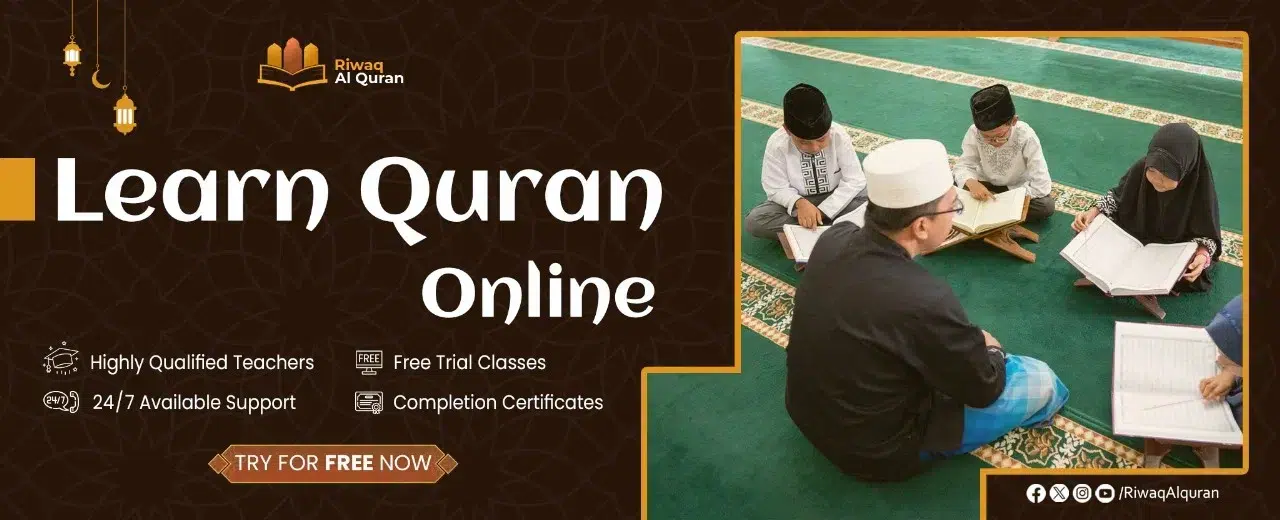
The Power and Significance of Dua for Helping the Needy
Helping the needy is one of the most beloved acts in Islam, deeply rooted in compassion and mercy. Yet, alongside the physical acts of charity, making dua for those in need carries profound spiritual power. Dua is not just a call for help—it’s an intimate conversation with Allah, the Most Generous, seeking His mercy and provision for those struggling in silence.
An Islamic Perspective on Dua for the Needy
In Islam, caring for the less fortunate is a fundamental duty, and Allah repeatedly commands believers to be generous and just. The Prophet Muhammad ﷺ said,
“Whoever relieves a believer’s distress of the distressful aspects of this world, Allah will rescue him from a difficulty of the difficulties of the Hereafter.”
(Tirmidhi)
This shows that dua combined with action holds immense reward and significance. When we pray for the needy, we are not only asking Allah to ease their hardships but also nurturing our hearts to be more compassionate and mindful of the blessings we have.
The Virtue of These Supplications
The Quran and Sunnah highlight numerous duas for easing difficulties and granting sustenance:
“Our Lord, grant us good in this world and good in the Hereafter and protect us from the punishment of the Fire.” (Surah Al-Baqarah 2:201)
Such supplications invite divine mercy and open doors for help beyond human means. Making dua for the needy connects us spiritually with those who suffer, reminding us that true assistance comes from Allah’s infinite generosity and that we are His instruments in delivering relief.
Why This Matters
Making dua for the needy is more than an act of kindness—
It’s an expression of empathy and solidarity with those facing trials.
It’s a reminder that all provision is ultimately from Allah, and our role is to ask and act with sincerity.
And most of all, it’s a means to purify our souls, cultivate humility, and increase gratitude.
May Allah accept our duas, grant ease to those in need, and make us among those who give sincerely, both in prayer and in deed.
Practical Steps to Complement Your Duas
1. Take Action with Sincerity
While dua is powerful, Islam encourages us to actively seek solutions. Whether it’s donating to charity, volunteering your time, or supporting community projects, pairing your prayers with real effort amplifies their impact and shows genuine commitment.
2. Maintain Consistency in Prayer
Make dua regularly and with patience. Consistent supplication reflects true reliance on Allah and strengthens your spiritual connection, increasing the chances that your prayers will be answered in the best way.
3. Seek Knowledge and Awareness
Learn about the needs of your community and the most effective ways to help. Understanding the root causes of hardship enables you to provide more meaningful support beyond just making dua.
4. Encourage Others to Join
Invite family, friends, and your community to join in dua and charitable deeds. Collective efforts bring greater blessings and build a stronger network to support those in need.
5. Practice Gratitude
Always thank Allah for your blessings. Cultivating gratitude opens your heart, inspires generosity, and deepens your spiritual fulfillment while motivating continued support for others.
Read Also: Quranic Verses on Zakat: A Guide to Giving and Spiritual Growth
Learn Quran and Islamic Studies with Riwaq Al Quran
Making dua is the first step toward helping the needy and growing spiritually, but gaining knowledge is the key to deepening your faith and understanding. At Riwaq Al Quran, we offer expert-led Quran and Islamic studies classes designed to support learners of all ages.
Whether you want to improve your Quranic recitation, understand the teachings of Islam more deeply, or teach your children valuable duas and Islamic manners, Riwaq Al Quran provides personalized, one-on-one lessons with certified, caring instructors.
What We Offer:
- Personalized Quran tutoring for all levels
- Tajweed and memorization courses
- Islamic studies focused on practical application
- Flexible scheduling to fit your lifestyle
- Trusted by thousands of students worldwide
Why Choose Riwaq Al Quran?
Because every dua and act of worship is strengthened by knowledge. Our mission is to help you connect with Allah through proper learning and heartfelt practice.
Ready to start your journey?
Enroll today and experience the difference expert guidance can make in your Quranic and Islamic studies.
When Is the Best Time to Make These Duas?

The best time to make these duas is during moments when prayers are more likely to be accepted. These include:
- After the obligatory prayers (Salah), when your heart is connected to Allah and your focus is strong.
- During the last third of the night (Tahajjud time), a special time of sincere worship and closeness to Allah.
- Between the Adhan and Iqamah, when the gates of mercy are open.
- While fasting or breaking your fast, these are moments of great blessing.
- When in prostration (Sujood) during prayer, as it is the closest a servant is to their Lord.
Making dua consistently with sincerity at these times increases the chance that Allah will hear and respond to your prayers.
Read Also: Top Quranic Verses on Marriage
Can I Say These Duas in English, or Do They Have to Be in Arabic?
Yes, you can say these duas in English or any language you understand, especially if you are still learning Arabic. What truly matters is the sincerity of your heart and your connection with Allah when making the supplication.
However, Arabic is recommended because many duas are directly from the Qur’an or the Sunnah, and reciting them in Arabic preserves their original meaning and beauty. It also helps familiarize you with the language of the Qur’an.
If you don’t yet know the Arabic version, it’s perfectly acceptable to say the dua in English or your native language. Allah understands all languages and knows your intentions even before you speak.
Tip: You can learn the dua line by line in Arabic alongside its English meaning to gradually improve your memorization and understanding.
Know more about our Online Quran Tafseer Course
How Can I Help My Child Learn These Duas?
Helping your child learn these duas is a beautiful way to nurture their faith and build a strong spiritual foundation. Here are some simple and effective ways to support their learning:
Start Small and Be Consistent
Begin by teaching your child one short dua at a time. Repeat it regularly until they feel comfortable and confident. Once mastered, gradually introduce more duas to build their collection.
Read Also: Short Quranic Verses for Prayer
Use Repetition and Melody
Children learn best through repetition and melody. Recite the duas in a gentle, rhythmic tone or sing them softly to make the learning process fun and engaging.
Read Also: Quranic Verses on Salah In Arabic And English
Make It Part of Their Routine
Incorporate the duas into daily activities such as before meals, sleeping, or leaving the house. Connecting duas to everyday moments helps your child remember and understand their importance.
Read Also: Best Quranic Verses Related to Justice
Visual Aids and Stories
Use colorful charts, flashcards, or simple stories to explain the meaning of each dua. Visual aids and storytelling make the duas more relatable and easier to memorize.
Read Also: Quranic Verses On Positive Thinking In Arabic And English
Lead by Example
Children imitate what they see. Regularly recite duas yourself to show your child that making dua is a natural and meaningful part of daily life.
Explore Our Quran Kids Courses Now—and choose from a wide variety of programs tailored for every level:
- Quran Recitation Course for Kids
- Quran Memorization (Hifz) Course
- Tajweed for Kids
- Islamic Studies for Kids
- Dua and Hadith Memorization Course
- Arabic Language for Kids
Let your child embark on their learning journey with qualified teachers, structured lessons, and a lasting love for Islam.
Explore Our Quran Kids Courses Now
Why Students Love Learning with Riwaq Al Quran
Hear directly from our students about how Riwaq Al Quran Academy has transformed their connection with the Book of Allah. Their experiences reflect the dedication, care, and quality that guide every step of our teaching.
Begin Understanding Quranic Verses on Helping the Needy with Riwaq Al Quran
These verses deserve to be understood deeply, recited correctly, and internalized completely. Riwaq Al Quran offers:
Certified Azhari tutors — Al-Azhar University graduates
1-on-1 personalized sessions tailored to your level
24/7 flexible scheduling for busy adults and students
Affordable pricing starting at just $32/month
2 Free Trial Classes — no credit card required
100% Money-Back Guarantee
Book your free trial today and begin learning the Quran the way it was always meant to be taught.
Beyond memorization, we offer courses in Online Tajweed Classes, Arabic Language, and Islamic Studies.
- Online Quran Memorization Course
- Tajweed Classes
- Online Quran Classes for Kids.
- Ijazah Program.
- Arabic Language Classes.
- Islamic Studies Courses.
Here are a sample of our set of Quran Courses that will be helpful for you:
- Online Tafseer Course: Delve into Quranic meanings with our insightful online Tafseer course.
- Noorani Qaida Online: Learn Quranic basics efficiently through our Noorani Qaida online program.
- Online Quran Recitation Course: Enhance Quranic recitation skills through our expert-led online course.
- Online Tajweed Classes: Master Tajweed rules for beautiful Quranic recitation in online classes.
- Quran Memorization Online Course: Memorize the Quran effectively with our specialized online memorization course.
- Online Qirat Course: Explore diverse Qirat styles with our comprehensive online Qirat course.
- Online Quran Classes for Kids: Nurture a love for the Quran in kids through interactive online classes.
Enroll now for 2 Free Trial Classes and Begin Memorizing Quran Today.

Conclusion
The Quran’s approach to helping the needy is layered and consistent — connecting generosity to faith, worship, character, and eternal reward. These verses are not optional encouragements; they are foundational obligations that define the believing community.
Practical giving in Islam is guided by clear principles: sincerity of intention, preservation of the recipient’s dignity, and giving from genuine wealth rather than surplus alone. The Quran outlines both the reward for compliance and the consequence of neglect.
Memorizing and reflecting on these verses regularly deepens a Muslim’s commitment to social responsibility. Insha’Allah, every believer who engages with these words will find renewed motivation to give — not for recognition, but purely for the sake of Allah.

